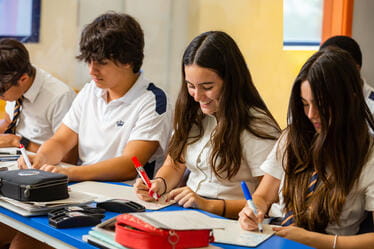We use cookies to improve your online experiences. To learn more and choose your cookies options, please refer to our cookie policy.


In modern society, as with any societal change in history, creativity and invention is ubiquitous. As a global society our students are not expected to work in passive, rote, unconnected environments. In the unknown dynamic, interconnected, creative world of tomorrow companies are often looking for creative skills, capacity, and personal agency within their employees.
In modern society, as with any societal change in history, creativity and invention is ubiquitous. As a global society our students are not expected to work in passive, rote, unconnected environments. In the unknown dynamic, interconnected, creative world of tomorrow companies are often looking for creative skills, capacity, and personal agency within their employees.
Everyone has within them the ability to be creative and all students should have the opportunity to grow, to utilize and maximise their creativity, developing their critical thinking and problem solving abilities. Creativity is a cognitive process that transforms understanding of the world around and our relationship with it. We can benefit from, or appreciate the creativity of others, even if we did not create it ourselves, whether it is through music, product design, the buildings we work in, or computer programming, creativity is all around us.
However, with supporting creativity come challenges. In an environment surrounded by stimulation students often spend time processing new stimuli at the expense of deeper learning. Teachers therefore need to create opportunity for thinking time, for Socratic discourse, that alternative perspectives are considered and understood. Through a rich language environment students at BCB analyse alternate perspectives within their own understanding. In doing so, they display their own thinking, metacognition is promoted, social skills and personal connection through collaborative work and shared understanding is promoted, and emotional intelligence is developed. Skills required to be successful beyond the walls of education and into future life.
Our curriculum deliberately includes music, drama, art, and computer science; subjects that traditionally are considered creative by their nature, but this does not mean that creativity is confined within these disciplines. At BCB the school could be considered an ecosystem in which teachers collaborate with each other and students, where learning is approached on an interdisciplinary level. Students are enabled to make connections that lead to important advances and innovation through deep processing, through new ways of thinking, that embraces uncertainty and failure; Edison did not create the light bulb on his first attempt. At BCB students engage in critical thinking in the classroom, replacing the dry lecture style passive format synonymous with the industrial age of education.
Our motto ¨Be Ambitious¨ exemplifies this journey into the unknown, where exploring the possible becomes an essential skill. Innovation and creativity is discovery of the achievable. The landscape of tomorrow is unknown, there are no maps or guides, at BCB we are preparing students to become citizens of this emerging world. Students at BCB must remain flexible, open minded, and of course - creative.
Nigel Schofield
Head of Secondary - The British College of Brazil